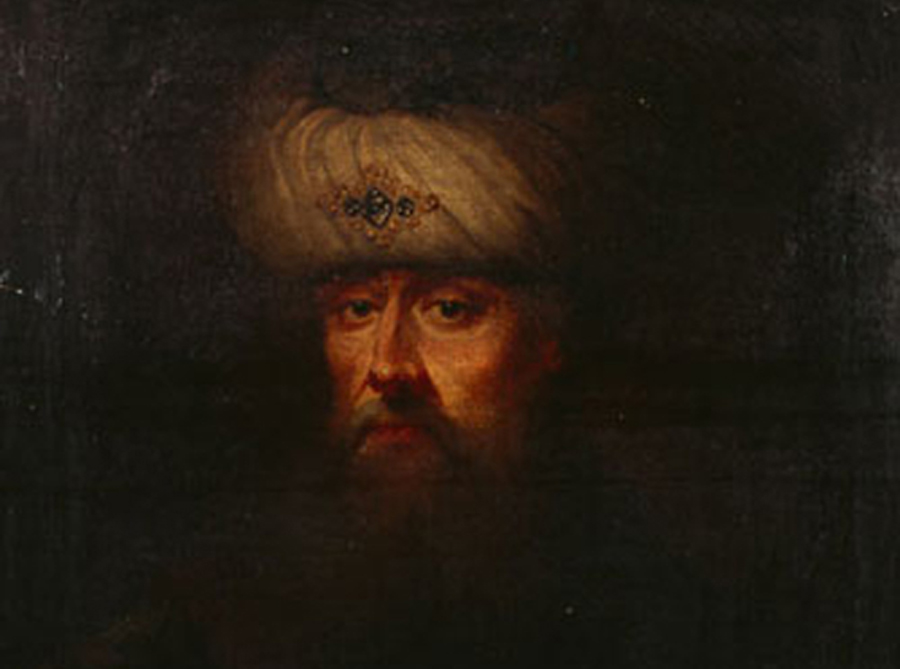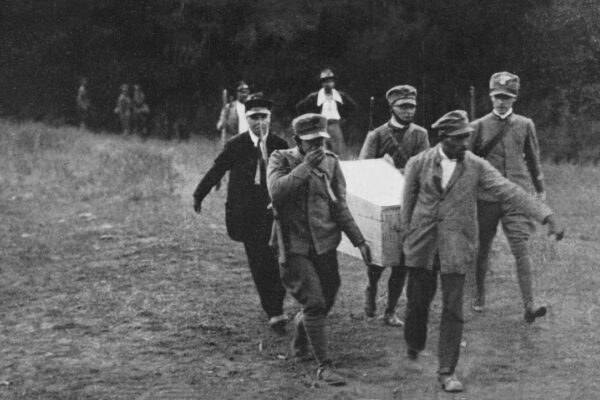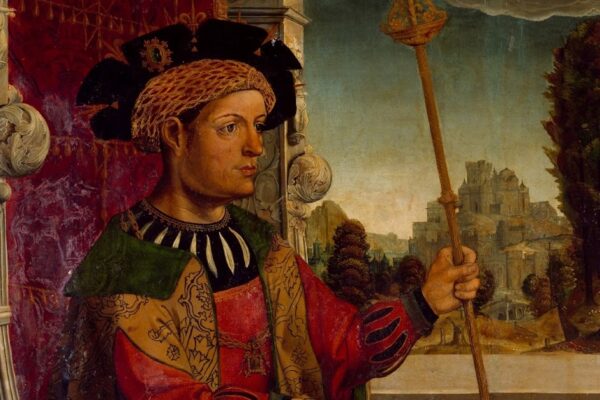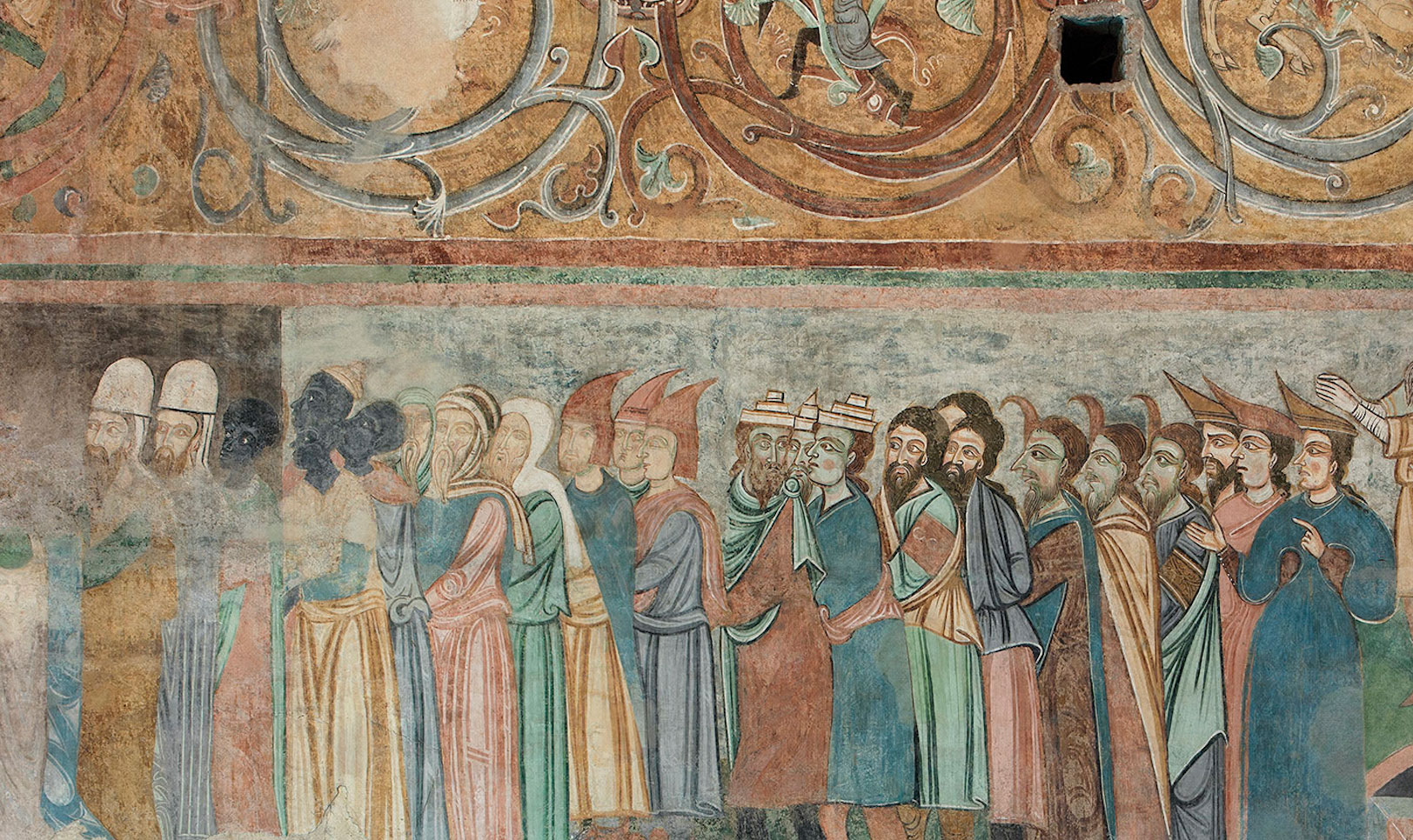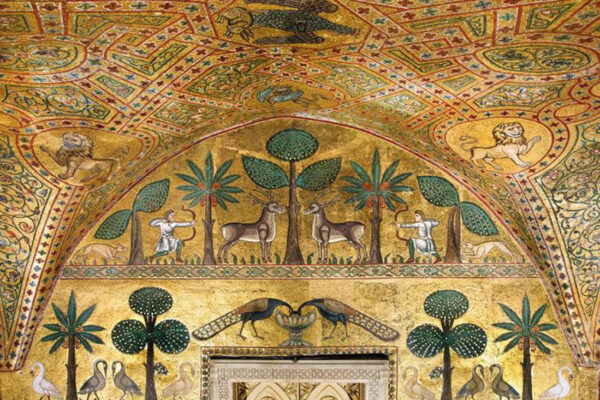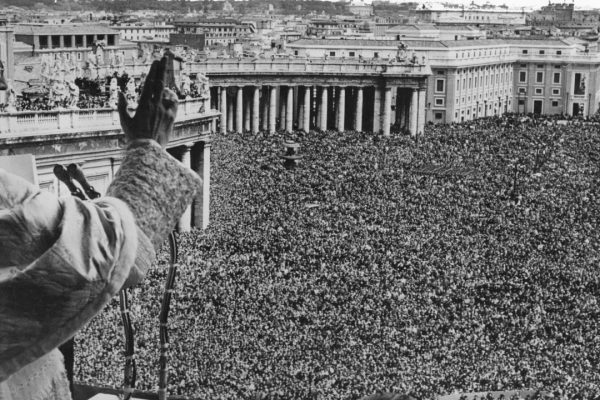Paula Fredriksen, the Aurelio Professor of Scripture emerita at Boston University, since 2009 has been Distinguished Visiting Professor of Comparative Religion at the Hebrew University, Jerusalem. A fellow of the American Academy of Arts and Sciences, she also holds two honorary doctorates in theology and religious studies. She has published widely on the social and intellectual history of ancient Christianity, and on pagan-Jewish-Christian relations in the Roman Empire. Author of Augustine on Romans (1982) and From Jesus to Christ (1988; 2000), her Jesus of Nazareth, King of the Jews, won a 1999 National Jewish Book Award. More recently, she has explored the development of Christian anti-Judaism, and Augustine’s singular response to it, in Augustine and the Jews: A Christian Defense of Jews and Judaism (2010); and has investigated the shifting conceptions of God and of humanity in Sin: The Early History of an Idea (2012). Her latest study, Paul: The Pagans’ Apostle (2017), places Paul’s Jewish messianic message to gentiles within the wider world of ancient Mediterranean culture.
We thank Paula Fredriksen for this anticipation on her upcoming book.
JOSEPHUS
[Winter 97 CE]He was an old man in a cold season. He had lived for so long at the stone heart of this city – the city whose legions had ravaged his own home. Outside, a wet wind shifted the snow into a heavy rain that pelted the glazed flagstones. The echoing sound was so, so familiar: he had measured time by its rhythms for almost thirty winters now, for almost half his life. And yet, too, its echoes remained eerie, other. He did not belong here. He had never belonged here.
But here he was, in this room, in this chair, trying once more to explain – to explain the war, to explain his past, to explain his people. Explain to whom? Who still listened? His enemies, perhaps. Or that glittering circle that surrounded his imperial patrons – Vespasian at first, then Titus, later Domitian. Or perhaps he was speaking to his own people, those numberless wide-flung communities that flourished throughout the Mediterranean, from the rim of North Africa up through Alexandria to Caesarea to Antioch and Asia Minor and Greece and, indeed, who flourished even here, in Rome itself. Everywhere they flourish, he thought. Everywhere but Jerusalem.
Jerusalem. He closed his eyes to the grey light, closed his ears to the echoing rain. Perhaps no one was listening. Perhaps he was still trying to explain because he himself was still trying to understand.
The war had cut his life in two.
*
In his memory, Jerusalem always shimmered in white and gold. Its sky was always a light-filled bowl of blue arching over the palaces of his youth, over the vast temple of his god. Indeed, the city had grown and prospered greatly on account of its close relations with Rome. The roots of those relations lay tangled up in nearly two centuries of political turmoil: Jerusalem’s wresting independence from Syria; Rome’s blood-soaked transition from republic to empire. These events had led to a peace that sometimes seemed no less bloody than war. The Hasmonean freedom-fighters had become Judean high priests and autocrats. Their power finally ceded to Herod the king – Herod, who butchered his in-laws, his Hasmonean wife, eventually even his own sons. Herod sealed his authority by yoking it to the power of Rome. And as Rome grew, so too did Jerusalem; as Augustus embellished his capitol city, so too did Herod his, lavishing his architectural genius particularly on its unique temple, a wonder of the ancient world.
The temple! He could see it still, could still sense its smells, could still feel the excited energy of the pilgrim crowds. At how many sacrifices had he assisted, within its sacred courtyards? The memory of those repeated motions still lived in his muscle. “I will go to the altar of God,” sang David the king, “to God, my joy and my delight.” To what altar, now? Now no altar stood. How was that possible? How had it happened?
How far back into the past, he wondered, extend the roots of the present? The Hasmoneans, by consolidating power, also alienated some of their own countrymen, who disliked their serving as high priests or as muscular monarchs. The greater the Jews’ external freedom, the greater their internal chaos. Vigorously various schools of practice and of interpretation sprang up – “haireseis,” he had called them in his adopted Greek: “sects.” Pharisees, Sadducees, Essenes. As an adolescent, he had spent time among them all. (He smiled remembering the charismatic loner, Bannus, rail-thin with self-starvation, with whom – to his parents’ horror – he had spent three years in the desert in pursuit of spiritual and physical purity.)
Herod the strong man had tamped these groups down. But with his death – and the failure of his hapless son, Archelaus – the noisy variety returned. Prophetic convictions roiled anti-Roman sentiment. Who were the Romans, to tax Judea? To appoint the high priest? To watch over the temple mount? Perhaps, indeed, thought some of his countrymen, the very fact of Roman power itself revealed the time on God’s clock. God would not allow things to continue like this indefinitely. Rome’s empire was the last. Surely the end of the ages, they insisted, was at hand. He shook his head. They had been right, but not in the way they had thought. Their world had ended. The rest of the world moved on.
His perspective on the past, he realized, followed a long curving line of the dead. So many dead, cut down by Rome’s soldiers; so many dead, suspended from Rome’s crosses. Two thousand crucified outside Jerusalem, when Varus suppressed the outbreaks that followed Herod’s death. Random crucifixions of untried prisoners under Pilate, especially during the pilgrimage holidays. A multitude extinguished by Fadus, killed for following a popular prophet. A riot at Passover put down by the bloody Cumanus. Who knew how many thousands Felix had butchered? How many Florus? More death when Vespasian quelled the Jews’ revolt against the empire. Thousands crucified within sight of the city walls during Titus’ siege. And then, overwhelming it all, the mass death and destruction once the city itself fell.
“Kuriê?” inquired the scribe poised before him. Josephus startled. How long had he been sitting in silence? “My lord, shall I read back to you what you have said?” Clearing his throat, the scribe continued, “ ‘Returning to my own country, I found revolutionary movements already afoot, and widespread elation at the prospect of revolt against Rome. I accordingly attempted to restrain those who promoted sedition, to bring them around to another way of thinking.’ This follows your description of your earlier trip to Rome, sir, before the war.”
“Before the war. Yes.” He thought for a moment, then resumed. “Write: I urged them to imagine the nation on which they wished to wage war, and to recall that they were inferior to the Romans, both in respect of arms and in respect of fortune. I warned them not to expose their country, their families, and their own selves – so recklessly, so insanely! – to such dire peril. Earnest, insistent, I sought to turn them from their purpose, foreseeing that the end of the war would be utterly disastrous for us. To no avail! Their madness was too strong for me . . . .”
Their madness was too strong for me. Destructive maniacs. He closed his eyes again. Truly, he had foreseen it all. Not as a mental calculation. As a prophecy. He owed his life to that prophecy. At Jotapata, it had saved him. Twice.
*
[August 67 CE]“You do not have to die.”
“What?”
Josephus could smell the man’s fear, could sense his barely-controlled panic at the horror that lay all around them: the bleeding bodies of thirty-eight fellow townsmen, slaughtered each by the other in turn until, finally, all that remained was this last man and the young general.
“There is no point. The Romans have won. The town is no more.”
“This is temporary. The dark before the light. A test,” the man hissed back. Why were they whispering? “You know the prophecy. Now is the time of our redemption. The king messiah is coming. He who rises to rule the nations. The time is now.”
Josephus’s eyes burned into the man’s. “You know nothing. God himself has gone over to the Romans. We should go over to the Romans now, too. To do otherwise” – he paused, emphasizing his words – “to do otherwise is simple impiety.”
“What? You lie!” The man’s voice choked with terror and rage. “I’ll kill you first and then I’ll kill myself.”
Oh no you won’t, Josephus thought. “The prophecy speaks to Rome, not to Israel.”
The man’s hand tightened on his dagger. “Viper. Liar.”
“Priest. And prophet. And still your general,” Josephus responded evenly. “The oracle says only that a man from our country will become the ruler of the whole world. That is true. But by night the spirit revealed its meaning to me. The ruler foretold is not the messiah.” He paused again, measuring his words. “The ruler is Vespasian.”
Vespasian! The Roman whose army hovered just outside the mouth of the mountain. The general whose soldiers had sacked Jotapata and cut down the man’s family, his neighbors, his world. But what did we just do here? he thought, glancing toward the carnage on the cave’s floor. If they don’t kill us, we kill ourselves. Vespasian? How was it even possible? Against his will, he felt his anger waver, then dissolve into weariness. “Nero is emperor.”
“And Vespasian will be emperor.”
The man lowered his dagger. “They will kill us if we surrender.”
“They may or they may not. I don’t know.” Josephus again paused, thinking. “But in any case, our struggle is doomed. Rome will win. And Vespasian will rule. This I do know.”
The sunlight blinded them, once they emerged from the cave. Discipline prevailed: the soldiers formed an escort around them, and led them to their general. Vespasian, unreadable, regarded them as if from a great distance, and then jerked his head toward Josephus’ companion. “He can go.”
“To the cross, General?” They had seen the crosses – a grotesque forest – as the soldiers walked them to the command post. Josephus’ companion shut his eyes and reeled slightly, suddenly pale. Vespasian pondered, then shrugged. “No need. He does not matter. Just let him go.” Go where? Josephus wondered. The man’s life was annihilated, bleeding out on the hillside behind them. Vespasian turned to Josephus. “This one stays.”
The next moments were delicate. The news he bore, heard by the wrong ears, would constitute treason. Too many men stood crowded around within earshot. He had to clear the tent. “I am more than your captive, my lord,” he began confidently, looking the Roman in the eye. “I am heaven’s messenger.”
Vespasian paused. There was no reason for Josephus to play for time: the escort had already promised safekeeping when he had surrendered. He would be sent to Nero as a prisoner, to be executed in Rome only after the war was won. Why then this sudden speech? What scheme stood behind his statement now? The general turned and, nodding, summoned Titus to his side. “What’s this?” he murmured.
Titus murmured back, “No way to know. But he’s not only their strategist. He’s a priest at their temple in Jerusalem. They keep ancient oracles. They have sacred scrolls. Perhaps he knows of some portent, something we should know. Not impossible. Perhaps . . .” his voice trailed off. The moment lengthened.
“Nicanor, stay,” Vespasian ordered abruptly. “Victor, stay. Everyone else, out.” Titus remained at his father’s side. They waited. Then: “Now, you. Speak.”
He felt suddenly light-headed. The awful certainly of what he was about to say infused him with a force that made him sway. This is the man, he thought, right here before me. No – looking now at Titus – this one also. Both. A part of his mind ran through a benediction in his native tongue, blessing God for having kept him alive until this moment. In Greek, he began, “Our oracles foretell that a man from our country will arise to rule the whole world.”
Not this again, thought Vespasian. He had heard this damned prophecy too many times already. The Jews of Jotapata had hurled it at him as he cut them down or fastened them to crosses. An invitation to insurrection. Their holy books be damned.
“A man from our country,” Josephus continued, “but not of it. The oracle, my lord, speaks to you. You are Caesar and Emperor, as will your son be after you.” Josephus moved his gaze to Titus, whose hand abruptly grasped at the hilt of his sword.
“Nero . . .”
“Nero will be no more. His line is finished. Your line is rising. You will prevail. Heaven appointed you long ago.” Josephus felt himself sway slightly as his words emerged from somewhere deep in his soul. “To you belongs the purple. To you the power and the glory. To you and to your line.”
Titus glanced at his father. Vespasian had not moved. Rather, his eyes had shifted to Nicanor and Victor, boring into them as Josephus’ prophecy hung in the still air of the tent. Nothing needed to be said.
“Bind the general. Keep him under watch. He is my prisoner.” For an instant, no one moved. Then Josephus, turning to Nicanor, extended his arms and quietly ordered, “Come.”
This is an excerpt from Paula Fredriksen, When Christians Were Jews, forthcoming from Yale 2018. The book arcs from the crucifixion of Jesus (in 30 CE) to the destruction of the Temple (in 70 CE), exploring how and why the earliest community of Jesus’ followers, after his crucifixion, abandoned their Galilean roots, resettled in Jerusalem, and awaited the coming of God’s kingdom, the defeat of pagan gods, the resurrection of the dead, and the return of their messiah. It’s a tale of two cities, Jerusalem and Rome. Courtesy of the author. All rights reserved.


